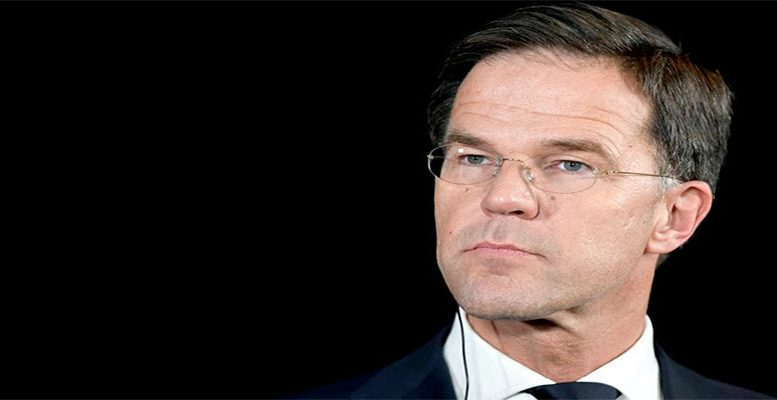The scandal that triggered the crisis will seem arcane to outsiders. Florian Eder of Politico Europe called the whole debating “confusing … for those perhaps a tad behind the Dutch on the path to political sainthood.”
After the election, the leaders of the seventeen parties that won seats asked Annemarie Jorritsma, a former traffic minister and leader of Rutte’s liberal VVD in the Senate, and Kajsa Ollongren, the interior minister of the social-liberal D66, to lead a first round of talks to map out which coalitions might be possible.
When Ollongren hastily left a meeting days later, after receiving word she had contracted coronavirus (falsely, it turned out), she was photographed with notes that suggested finding a “position elsewhere” for Pieter Omtzigt, the number-two lawmaker in the Christian Democratic party (CDA).
Omtzigt was one of the two parliamentarians who brought the so-called child benefits scandal to light that caused Rutte’s last government to resign. Between 2013 and 2019, some 26,000 parents were wrongly accused of fraud. Many were financially ruined by demands to pay back tens of thousands of euros in child support.
Rutte told reporters he hadn’t discussed Omtzigt’s position with Jorritsma and Ollongren, who promptly resigned their roles. They clarified in a debate on Thursday, which continued into the early hours of Friday, that the notes had been drafted by civil servants merely as suggested agenda items for their next talks.
The actual transcript of their conversation with Rutte, which was also released at the request of parliament, revealed that the three had discussed Omtzigt within the context of whether and how to persuade the CDA to join the next government. Rutte is keen to keep the Christian Democrats on board. His alternative is a coalition with the left. But far from trying to get rid of Omtzigt, Rutte suggested giving him a cabinet position.
Rutte told parliament he had misremembered the conversation. Jorritsma and Ollongren didn’t recall a discussion about Omtzigt either. Lawmakers had to decide if all three were lying or if they had just mentioned Omtzigt on the side.
Cannot continue
Thirteen out of seventeen parties assumed the worst and called on Rutte to go.
Only Rutte’s own VVD and the three parties in the outgoing coalition — D66, CDA and the smaller Christian Union — voted against a no-confidence motion introduced by the far-right Freedom Party, allowing Rutte to scrape by with 78 to 72 votes.
D66 leader Sigrid Kaag, the outgoing foreign minister, nevertheless advised Rutte to “draw his own conclusions.” Wopke Hoekstra, the CDA party leader and outgoing finance minister, said he was appalled by the revelations — but admitted he and Rutte had separately discussed Omtzigt’s future as well!
This weekend, Christian Union leader Gert-Jan Segers told the Nederlands Dagblad that Rutte has lost his “credibility” and cannot continue as prime minister.
Pattern of forgetfulness
What made Rutte’s excuse hard to swallow is that it wasn’t the first time he claimed memory loss. Kaag lamented his “pattern of forgetfulness.” Green party leader Jesse Klaver pointed out the previous occasions on which Rutte couldn’t recall details: “Every time you’re in trouble, your memory fails you.”
In 2019, Rutte couldn’t remember when he had first been told that seventy Iraqi civilians were killed in a Dutch airstrike on an Islamic State munitions depot in Hawija in 2015.
In 2018, he couldn’t remember notes from civil servants about a proposal to abolish dividend tax.
In 2015, he couldn’t remember a deal his junior minister for justice, Fred Teeven, had made as a prosecutor in 2000. When it emerged Teeven and his boss, Justice Minister Ivo Opstelten, had misinformed parliament about the deal, both resigned — but Rutte persevered.
Alternative
Hoekstra and Segers may want to refresh their own memories as well. Rutte has been good to their parties.
Not all Christian Democrats have accepted they are now the junior party on the right. Until Rutte, there hadn’t been a liberal prime minister in the Netherlands since 1918. Christian parties supplied eighteen of his 22 predecessors. When Rutte won the election in 2010, and the Christian Democrats fell from 41 to twenty seats, he nevertheless agreed to split the cabinet posts equally between the two parties. When Hoekstra attacked Rutte for a string of “broken promises” in the last election campaign, Rutte did not take the bait.
Rutte, a Protestant in a majority secular country, has shown repeated deference to the Christian Union as well. In 2011, his liberal party held its nose and voted against a proposal to fire civil servants who refused to marry gay couples. In the last government, Rutte blocked D66’s wish to liberalize euthanasia law.
The VVD is the only major party, in addition to the CDA, that opposes forced reductions in livestock in order to cut greenhouse gas emissions. The Christian parties are popular with farmer.
CDA and Christian Union are playing a dangerous game if they hope to force Rutte out. Kaag could go into government with the left — but a left-wing majority isn’t possible without the Christian parties. Would they prefer to team up with the animal rights party, the Greens, Labor and the far-left Socialists in addition to D66? Because that’s the only way to get around the 34 seats of the VVD and the 28 seats of the far right, which are toxic to everyone.
Read More





